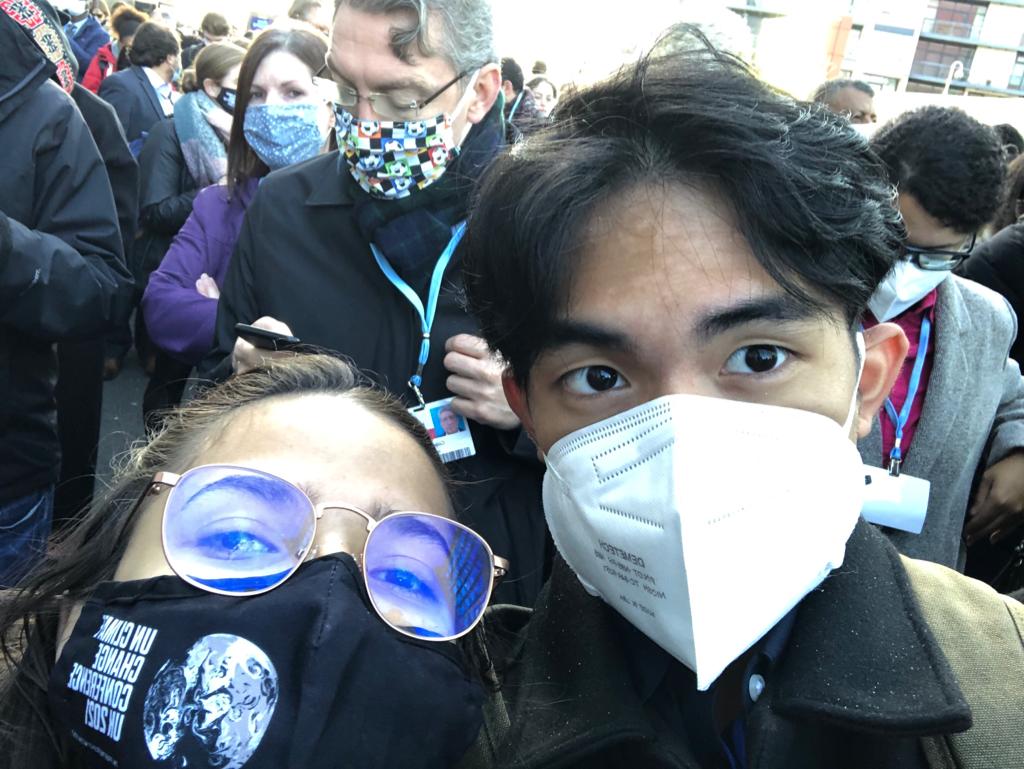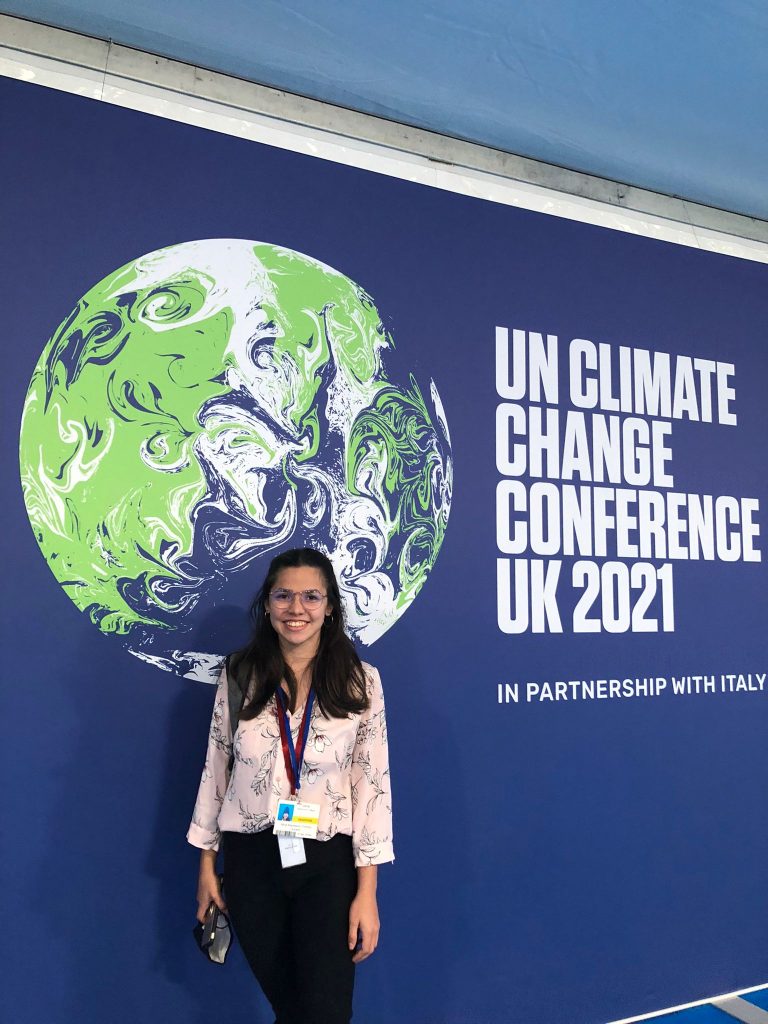
Hi all!
Even though this is my first blog, you might already know from Daniel that so far we have mostly attended events at the pavilions.
Today was a similar day. We could not get into the plenary sessions (where the negotiations happen) since they were restricted to mostly official party delegates. The reasoning we were given was that the capacity of the site is limited and because Monday and Tuesday were dedicated to the “World leaders summit” with leaders from all over the world (the important people) there were no spots left for observers. The hope and communication we got is that starting tomorrow, that should get better and we should have more chances to get into the plenary sessions and follow the negotiations more closely.
Overall, there have been a lot of complaints regarding the transparency and lack of communication at this COP, even way weeks before it started.
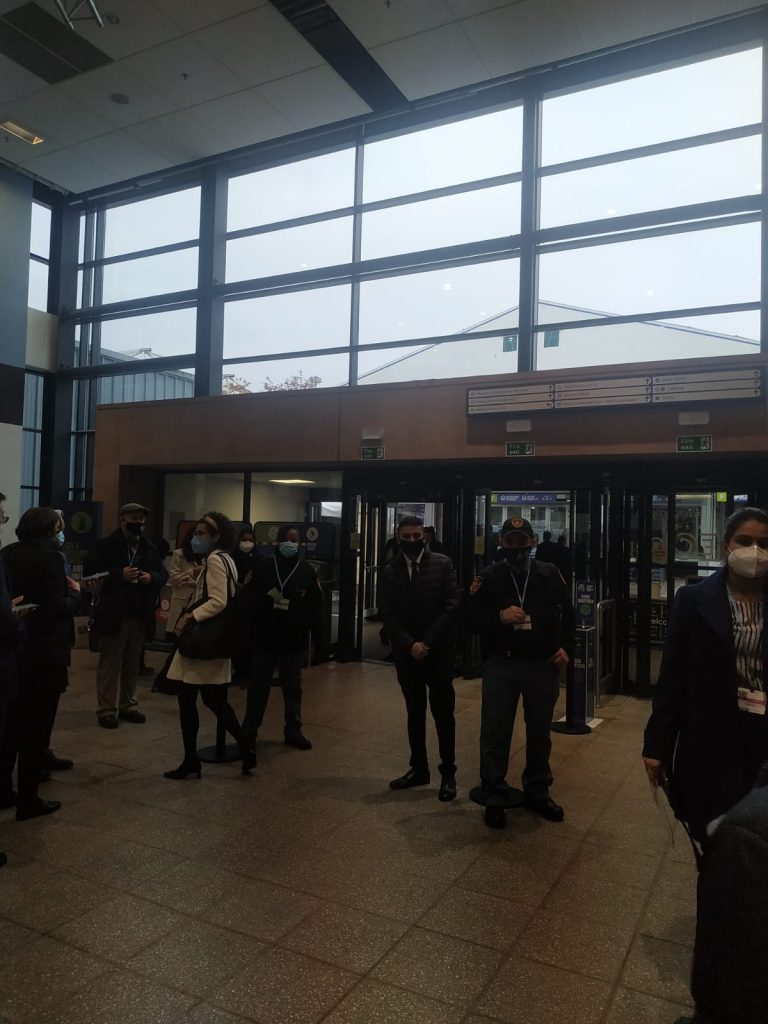
Anyway, we all filled our schedules for the day with events in the pavilions. I started the day attending a roundtable discussion at the US Center pavilion titled “Equitable Deep Decarbonization: A Roundtable Discussing the Historic Justice40 Initiative.” They talked about the Justice40 initiative of Biden’s plan that that “aims to deliver 40 percent of the overall benefits of federal investments in climate and sustainable transportation to disadvantaged communities” and the importance of transparency and engaging communities in conversations so that solutions come from the bottom up. Something to note though is that at least from the sessions I attended so far at the US Center pavilion, they don’t open up the space for questions. Overall, the session was good and I appreciated how they highlighted the importance of putting these communities at the center. However, as long as they only share what they want to share, I’m going to remain a bit skeptical, especially when the conversation is about how inclusive something is.
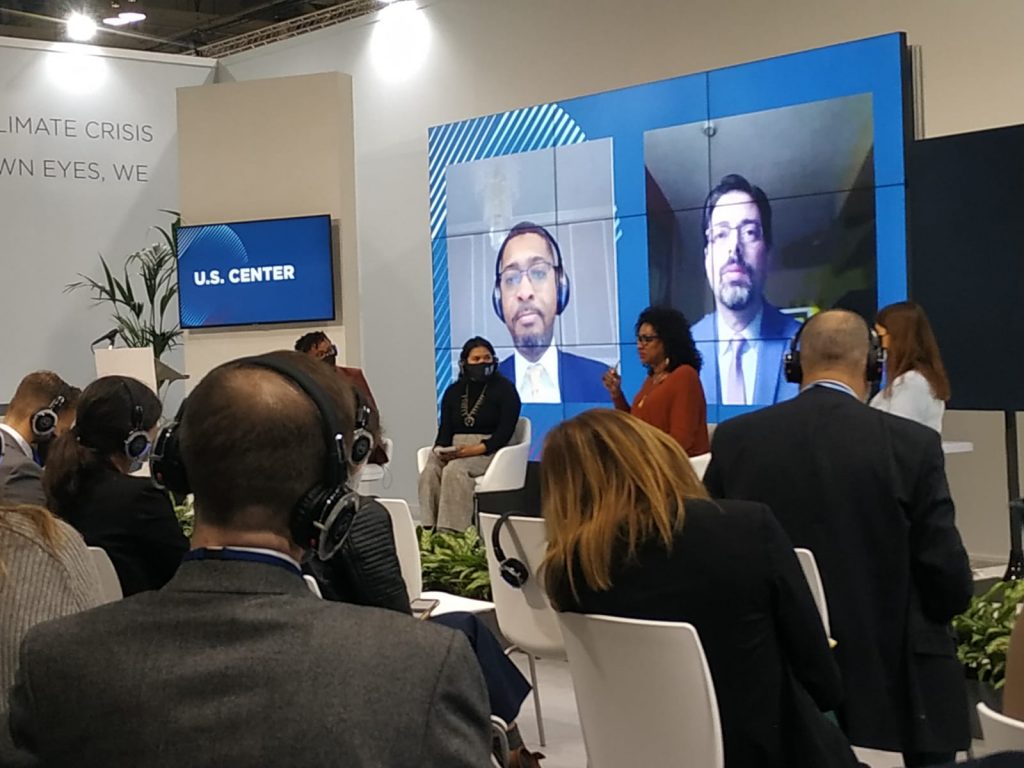
Another event Daniel and I attended was at the WHO pavilion titled “Achieving the Paris Agreement and preventing the next Pandemic: the case for transformative, climate-resilient and healthy food systems.” They mostly highlighted the need to shift to a new food system and diets that are less meat-intense, end industrial animal farming, and shift to agroecological systems. Something they stressed after a question Daniel asked with regards to cultural considerations was that even though the goal of reducing meat consumption is global, their more specific target is the global north and do not mean to impose diets on communities who have their specific cultures and whose impact are minimal.
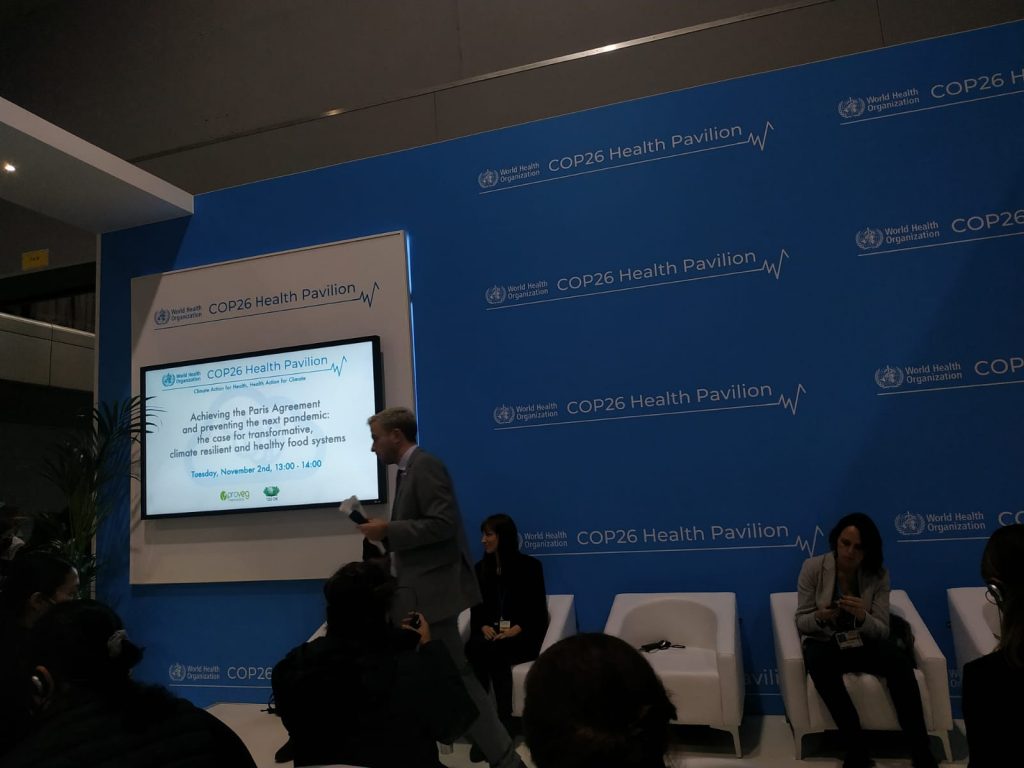
The next event, and in fact my favorite of the day, was hosted by delegates of Costa Rica at the NDC pavilion. The session was about Costa Rica’s approach to climate change and was called “Transformative Climate Communication-Short Stories and Climate Conversations.” They mentioned that they believe in science and that all plans and solutions should be based on science but even science has limitations and that’s when imagination comes into play, to complement science and craft solutions. They then showed a video of several writers from Costa Rica reading poetry and tales about the world in 2050, allowing us to dream of a different world with good outcomes and imagine a world of possibilities. Listening to the stories filled me with joy and inspiration (also felt good to attend a session in my first language, Spanish.) I think there is so much power in that art to inspire and boost real action using the science available to us.
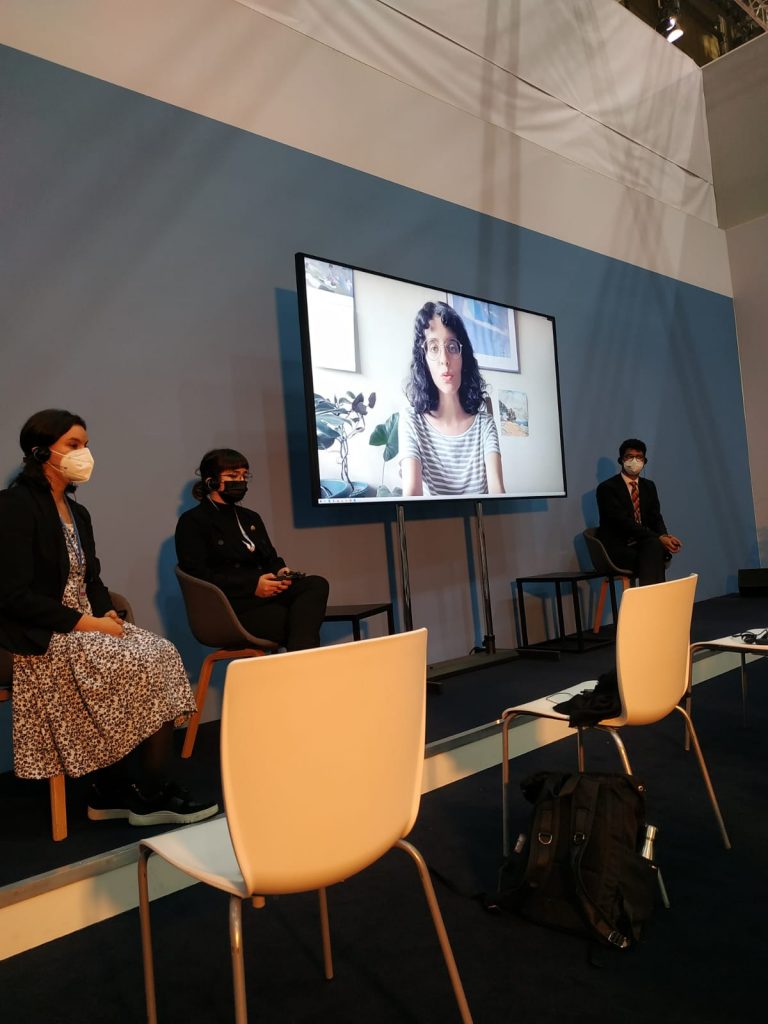
The stories read are actually not public yet as they are part of a book that will be officially published at the end of the year as part of a project from the Climate Change Office from the Environmental Ministry. If anyone is interested, the book is called “Costa Rica 2050 tales of change” and features the work of several authors. They also mentioned that with the goal of being inclusive they tried to incorporate as many authors from different backgrounds as possible such as indigenous, LGBTQ+, and rural communities but also acknowledge that the way everyone experiences climate change is different and not one perspective could be the same as others. Another project that Costa Rica featured was the “Climate Conversations.” The idea is basically to promote communication and space for conversations about climate change. They brought up the point of how even though people know about climate change they don’t talk about it and if they don’t talk about it, it’s harder for them to raise their voices. They also mentioned that inclusivity played a role in the creation of the guidelines and methodologies they created for the discussions as they were co-created with different communities.
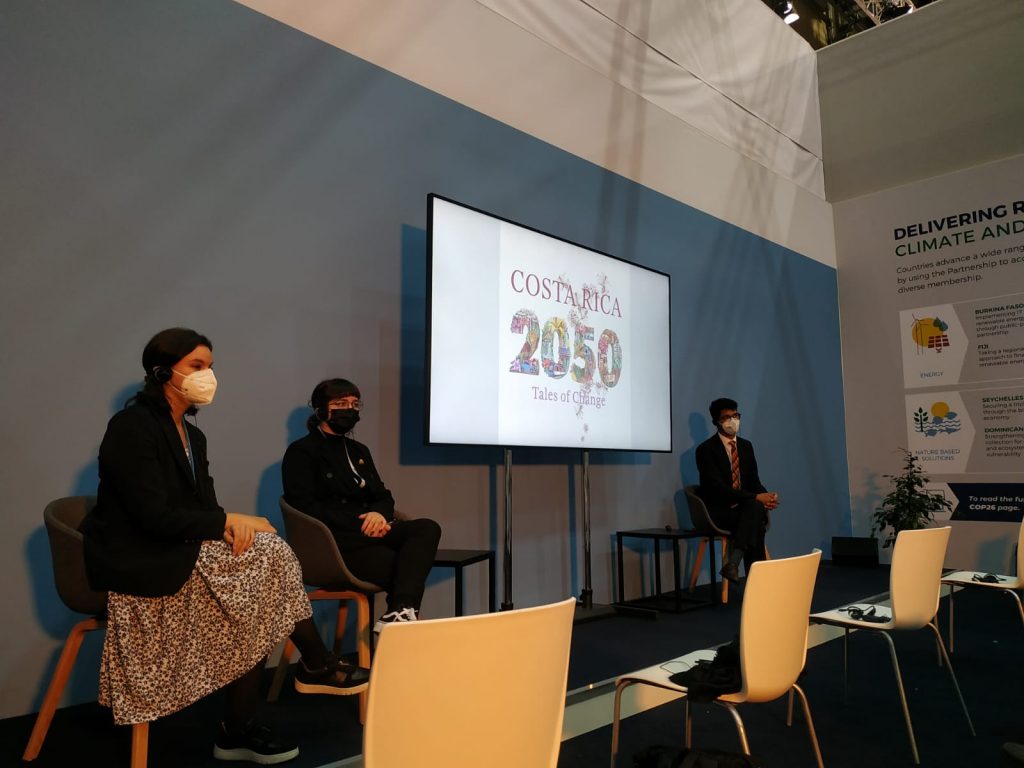
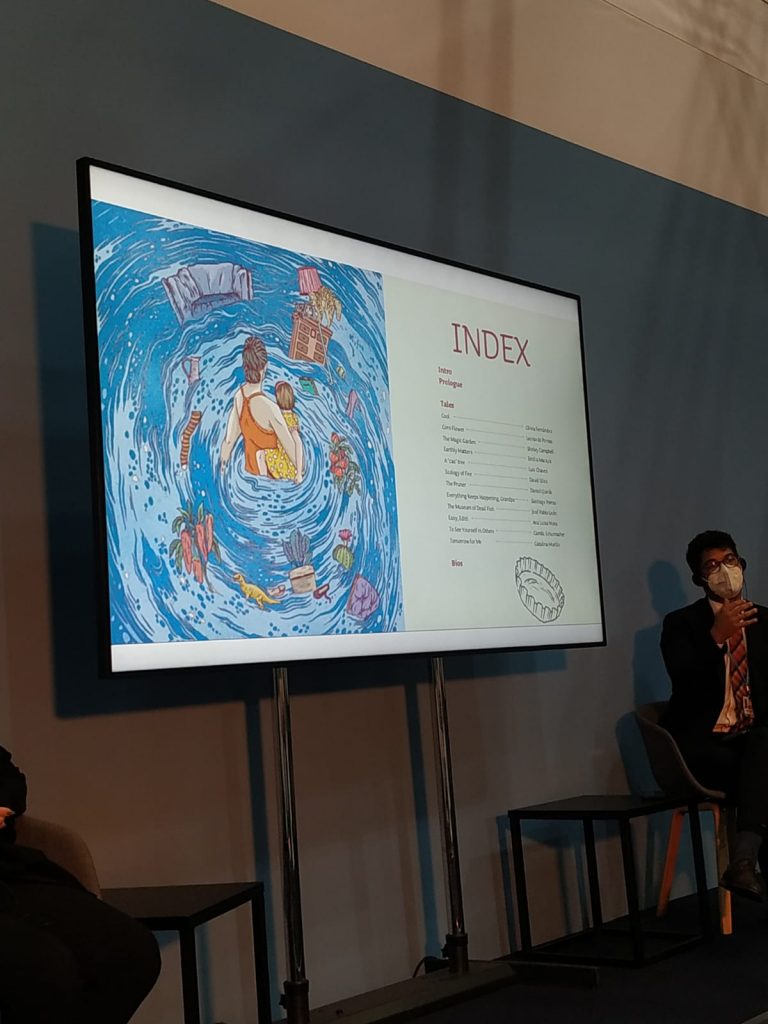
To end the day, we had the opportunity to briefly meet with Swarthmore alum and a former professor who are part of the US official delegation. Among other things, we discussed how this COP is different from previous ones, delegation sizes, how to get the best out of our time at COP26 among other things.
Oh and before heading to the train station back to our hotel, I found someone from Paraguay (my home country) who’s also attending COP26 as an observer with her organization. I am very happy I get to make these connections (found 2 Paraguayans yesterday too who are actually party delegates) with people working on Climate Change issues back home, especially since we don’t have a lot of youth representation.
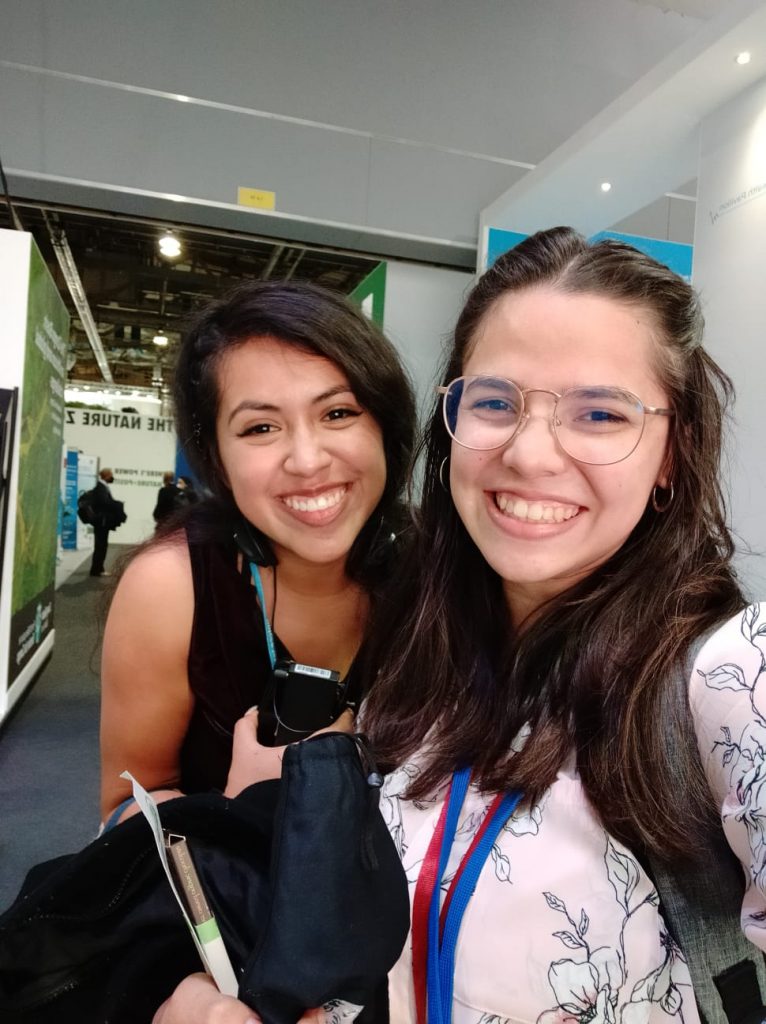
Today, just like yesterday, was a good day filled with inspiration and connections. Hope tomorrow we get the chance to follow the negotiations more closely. Stay tuned!
